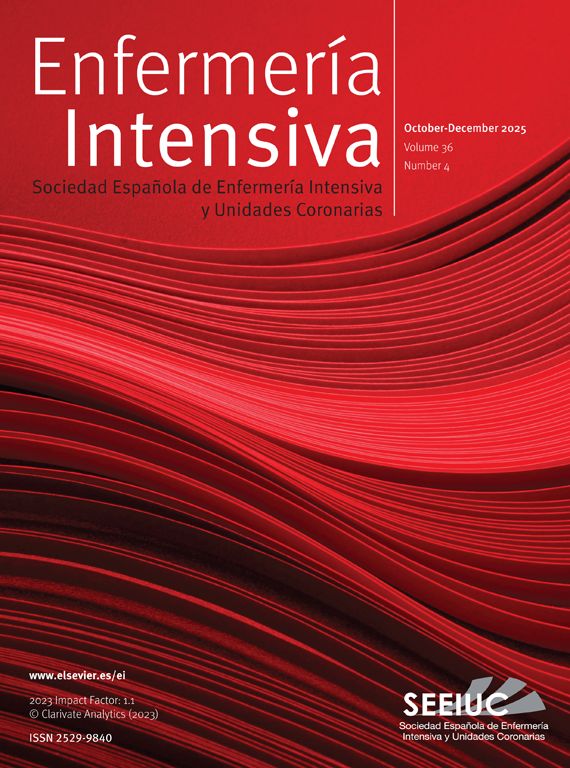Spain has been a world leader in organ donation since 1992 and since 2016 has been the only country in the world with more than 100 transplanted patients per million inhabitants each year. However, there remains a waiting list, and therefore between 5% and 6% of patients are still dying while on the transplant waiting list.1
The contribution of controlled asystole donation in recent times has resulted in an exponential increase in the total number of organ and tissue donors, currently comprising almost 25% of total donors in our setting.2
Without doubt, the incorporation of intensive care to lead the process has maintained and promoted the success of the Spanish transplant model.3
These new scenarios, and the need to reduce waiting lists, mean health professionals, particularly nurses, must be fully involved through their closeness to the patient and his or her family, and be a fundamental link in the care of the family in the grieving process, as well as in helping to make decisions regarding the option of organ and tissue donation.4
For all these reasons, updating knowledge and disseminating results are fundamental tasks for hospital transplant coordination in the area of training for professionals and in the social context,5 with a commitment to raising public awareness of organ and tissue donation.
It is obvious and inherent to our profession that all professionals must respect the wishes of the patient in end-of-life care.6 Therefore, the necessary regulatory structures within the organisation must be organised so as to make it a priority for health professionals to check the patient's wishes in this regard by consulting the register of advance directives.
With regard to the consensus on limitation of therapeutic effort, this must be clear and, although it falls to the doctor to determine when a patient has no curative options to avoid therapeutic obstinacy, article 21 of Law 2/2010 on rights and guarantees of the dignity of the individual in the process of death7 determines that this limitation will take place after hearing the nurse’s judgement and in agreement with it. It is important to endorse this, making it incontestable that trained and conscientious professionals in this field will honour the true meaning of our profession, which is above all to offer dignified and quality care to the patient at the end of his/her life.
Finally, I would like to take the opportunity to remind readers of the need to extend nursing research in this field, through important journals such as this. I would suggest that it in this context that our profession still has much to contribute.
To all the nurses who care for us daily in Spanish ICUs.
Please cite this article as: Vallejo Báez J, Molero Pardo MJ. El derecho a ser donante de órganos es una responsabilidad de todos. Enferm Intensiva. 2020;31:207–208.







